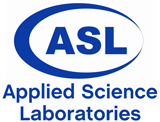J.A.F. Stevenson Visiting Professorship of the CPS
Departmental Chairs and Research Directors are encouraged to nominate suitable applicants from other Universities and to facilitate the nomination of their young faculty by Chairs\Directors from other Universities. Each year the Canadian Physiological Society offers a Visiting Professorship to an outstanding young Canadian Physiologist. The purpose of the Visiting Professorship is to promote collaboration and exchange of information among investigators at Canadian Universities and to strengthen graduate training programs in physiological research.
The society will provide travel expenses for the visiting professor; living expenses will be the responsibility of the host University. Nominations for the award are normally made by a Departmental Chair or Research Director to enable a distinguished young investigator from another Canadian Institution to visit the host university and to give a lecture and/or graduate seminars. The host department or research group can be at any one of the sixteen in Canadian University Faculties of Medicine.
The candidate chosen to receive the Visiting Professorship will also present a lecture at the Annual Winter meeting of the Society. Partial reimbursement of expenses to attend the Winter Meeting of the Canadian Physiological Society will be the responsibility of the Canadian Physiological Society.
The selection of the Visiting Professor will be the responsibility of the Council of the Canadian Physiological Society and will be based on the scientific achievements of the candidate. Nominees for this award will be, or is expected to become, a member of the Canadian Physiological Society. The Visiting Professorship will not be awarded to candidates after the tenth year from receiving their first faculty position. In the event that more than one host University has requested the chosen recipient, the University which first placed the request will be given preference.
Nominations should be sent to the Secretary of the Society at the address given below. Each nomination should include a letter from the sponsor setting out the proposed itinerary and include the curriculum vitae of the candidate.
Nominations must be received by the Secretary before August 1. Electronic versions of letters of nomination and supporting documents should be sent to:
Dr. Melanie Woodin
Department of Cell & Systems Biology
25 Harbord Street
Toronto, Ontario
Canada M5S 3G5
e-mail: [email protected]
Tel: 416-946-3692
Fax: 416-978-8532
————————————————————————————————————-
2012 Awardee
Deda Gillespie, McMaster University
Dr. Deda Gillespie is currently an Assistant Professor in the Department of Psychology, Neuroscience & Behaviour at McMaster University. After receiving a BS (Biology) from Yale University and a PhD (Neuroscience) from UC San Francisco, she went on to postdoctoral work in neurobiology at Northwestern University and the University of Pittsburgh.
Dr. Gillespie’s major research interests lie in sensory processing and neural plasticity, and more specifically in how neural circuits are established and refined during development to optimize neural processing. She has investigated these questions in the mammalian visual and auditory systems, using a variety of physiological techniques—extracellular electrophysiology, in vivo and in vitro whole-cell patch clamp recording, flash photolysis, ion imaging, intrinsic signal optical imaging—and several neuroanatomical approaches.
The Gillespie lab currently studies developmental circuit refinement in the lateral superior olive (LSO), an area of the mammalian auditory brainstem crucial for localizing sound sources and implicated in a number of developmental auditory disorders. To compute interaural sound intensity differences, neurons in the LSO integrate excitatory inputs from one ear with frequency-matched inhibitory inputs from the other ear; a primary interest of the lab is to understand how these excitatory and inhibitory circuits are coordinately refined in the LSO during neural development. While a postdoc, Dr. Gillespie discovered that a group of inhibitory neurons in the immature auditory brainstem also release the excitatory neurotransmitter glutamate onto LSO neurons. One focus of her lab’s recent work has been to understand how this novel co-release of glutamate with the classical inhibitory neurotransmitters GABA and glycine may support activity-dependent developmental plasticity.
————————————————————————————————————-
Stevenson Professorship Award Winners
1980-1981 Wayne W. Lautt, University of Saskatchewan
1981-1982 Tessa Gordon, University of Alberta and J.J. Miller University of British Columbia
1982-1983 T. Phil Hicks, University of Calgary
1983-1984 John Ciriello, University of Western Ontario
1984-1985 Peter C.K Leung, University of British Columbia
1985-1986 Quentin Pittman, University of Calgary
1986-1987 John F. Burka, University of Prince Edward Island
1987-1988 Kenneth Baimbridge, University of British Columbia
1988-1989 Brian McVicar, University of Ottawa
1989-1990 Dave McCrea, University of Manitoba
1990-1991 Don Smyth, University of Manitoba
1991-1992 Andrew J Rankin, Memorial University
1992-1993 John Hanrahan, McGill University
1993-1994 Réjean Dubuc, Université du Québec à Montréal
1994-1995 Carol-Ann Courneya, University of British Columbia
1995-1996 Rui Wang, University of Saskatchewan
1996-1997 David Fedida, Queen’s University
1997-1998 Jean-Claude LaCaille, Université de Montréal
1998-1999 John Greer, University of Alberta
1999-2000 No nominees
2000-2001 Gerald Zamboni, University of Calgary
2001-2002 Joseph R. Casey, University of Alberta
2002-2003 Stephen Scott, Queen’s University
2003-2004 No nominees
2004-2005 Yu Tian Wang, University of British Columbia and Vancouver Hospital
2005-2006 Lingyun (Lily) Wu, University of Saskatchewan
2006-2007 Jaideep S. Bains, University of Calgary
2007-2008 Paul Linsdell, Dalhousie University
2008-2009 Monica Gorassini, University of Alberta
2009-2010 Neil Magoski, Queen’s University
2010-2011 No nominee
2011-2012 Deda Gillespie, McMaster University





